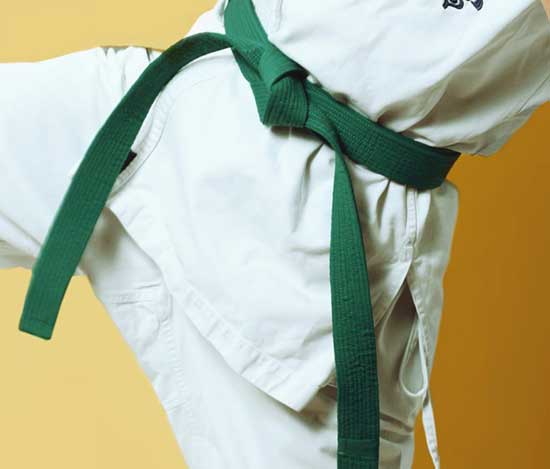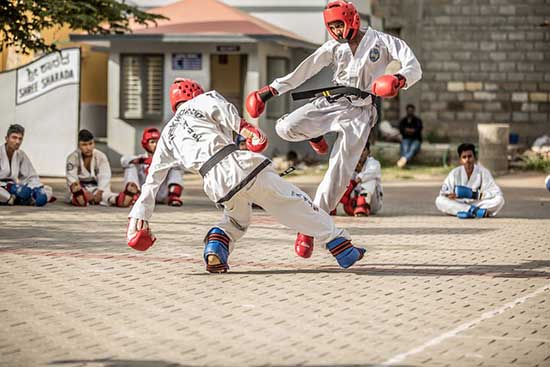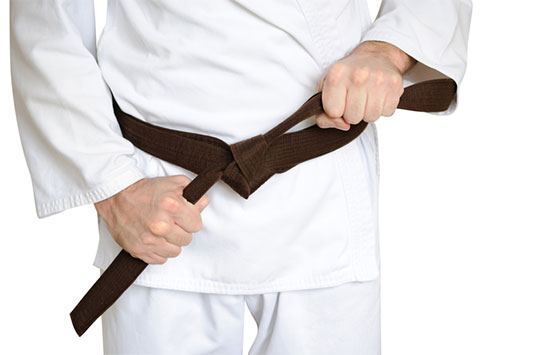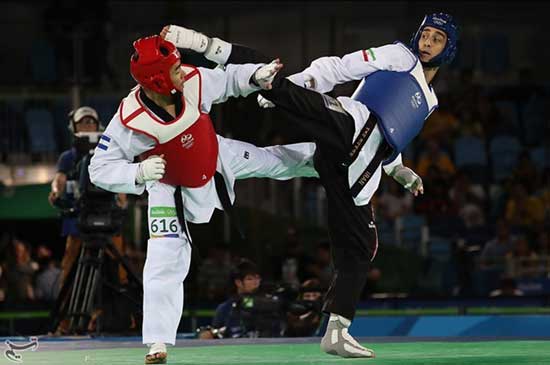Taekwondo is a martial art that originated in Korea and is characterized by its focus on powerful kicks. The name Taekwondo is derived from the Korean words “tae,” meaning foot, “kwon,” meaning fist, and “do,” meaning way or discipline.
The practice of Taekwondo emphasizes the development of physical strength, speed, agility, mental discipline, and focus.
Taekwondo training typically includes forms called poomsaes, which are pre-arranged movement patterns that help develop the practitioner’s technique, balance, and power.
It also includes sparring, which is used to apply the techniques learned in a realistic environment.
It is demonstrated through the practice of the Tenets of Taekwondo, which include courtesy, integrity, perseverance, self-control, and indomitable spirit.
Taekwondo is widely recognized as an Olympic sport, and it is also popular for self-defense and fitness.
It is a dynamic and exciting martial art that requires a combination of speed, power, and technique to be executed effectively.
It is a great way to get in shape, learn self-defense, and develop discipline and focus.
Jeet Kune Do is a martial art and fighting philosophy created by Bruce Lee. Jeet Kune Do translate to “the way of the intercepting fist.”
It emphasizes simplicity and efficiency in combat, with an emphasis on adapting to any situation. Jeet Kune Do incorporate elements from various martial arts styles, including Wing Chun, boxing, fencing, and wrestling, but it is not limited to any specific style or technique.
Instead, it encourages students to constantly evaluate and adapt their training. It is considered a dynamic and adaptable martial art that emphasizes personal expression and the ability to improvise.
Contents
Differences Between Jeet Kune Do and Taekwondo
Philosophy: Jeet Kune Do emphasize simplicity and efficiency in combat, and it encourages practitioners to constantly progress in this fighting style.
On the other hand, Taekwondo emphasizes physical strength, speed, agility, mental discipline, and focus.
Techniques: Jeet Kune Do incorporate elements from various martial arts styles.
In contrast, Taekwondo primarily focuses on powerful high-flying kicks, and its training includes forms called poomsaes, sparring, and developing mental discipline.
Training: Jeet Kune Do emphasize the importance of physical and mental training to develop the ability to react quickly and effectively in any situation.
Taekwondo training typically includes forms, sparring, and the development of focus.
Belts and ranking systems: Jeet Kune Do does not have a belt system, but it encourages personal expression and the ability to improvise.
On the other hand, Taekwondo has a ranking system, with colored belts and a black belt as the highest level of achievement, and it is considered an Olympic sport.
| Category | Taekwondo | Jeet Kune Do |
|---|---|---|
| Origin | Korea | United States (developed by Bruce Lee) |
| Philosophy | discipline, self-defense, and sport | practicality, adaptability, and freedom |
| Techniques | High and spinning kicks, strikes, blocks, and throws | Striking, trapping, grappling, and ground fighting |
| Training style | Formal, traditional training methods | More fluid and improvisational training methods |
| Competition | Olympic sport with regulated rules | No formal competition system |
| Belt system | Color belt ranking system | No belt ranking system |
| Uniform | Dobok (white or black uniform) | No formal uniform, typically wear athletic clothing |
| Weapon use | Limited to traditional Korean weapons (e.g. swords) | Focuses on the use of all available weapons and objects |
Similarities
- Physical fitness: Jeet Kune Do and Taekwondo strongly emphasize physical fitness and the development of strength, speed, and agility. Practicing both martial arts can be a great way to get in shape and improve overall physical fitness.
- Mental training: Both emphasize developing mental discipline and focus. This is demonstrated through the practice of the Tenets of Taekwondo and Jeet Kune Do’s emphasis on adapting to any situation.
- Self-defense: Jeet Kune Do and Taekwondo are effective for self-defense, as they focus on techniques that can neutralize an opponent quickly and efficiently.
- Both are recognized as a sport and have tournaments and competitions, allowing practitioners to test their skills and abilities.
What to choose?
The decision on what to choose between Taekwondo and Jeet Kune Do depends on personal goals and preferences.
For example, if your goal is developing powerful kicks and physical fitness, Taekwondo may be the right choice.
Jeet Kune Do may be a better fit if you are more interested in adaptability and personal expression.
Secondly is the sporting aspect. If you are interested in participating in competitions and tournaments, Taekwondo is an Olympic sport with a ranking system.
Jeet Kune Do is more focused on personal expression and adaptability. It is important to train in both martial arts and choose what fits your preference and goals before making a decision.
Take Away
Taekwondo and Jeet Kune Do are two martial arts. Taekwondo is great for developing powerful kicks, blows, physical fitness, and mental discipline.
Jeet Kune Do is great for adaptability, personal expression, and developing the ability to improvise. Both styles are also great for self-defense, sparring, and personal development.
Both styles offer unique benefits and challenges, and deciding which one to pursue depends on your personal goals and preferences.





